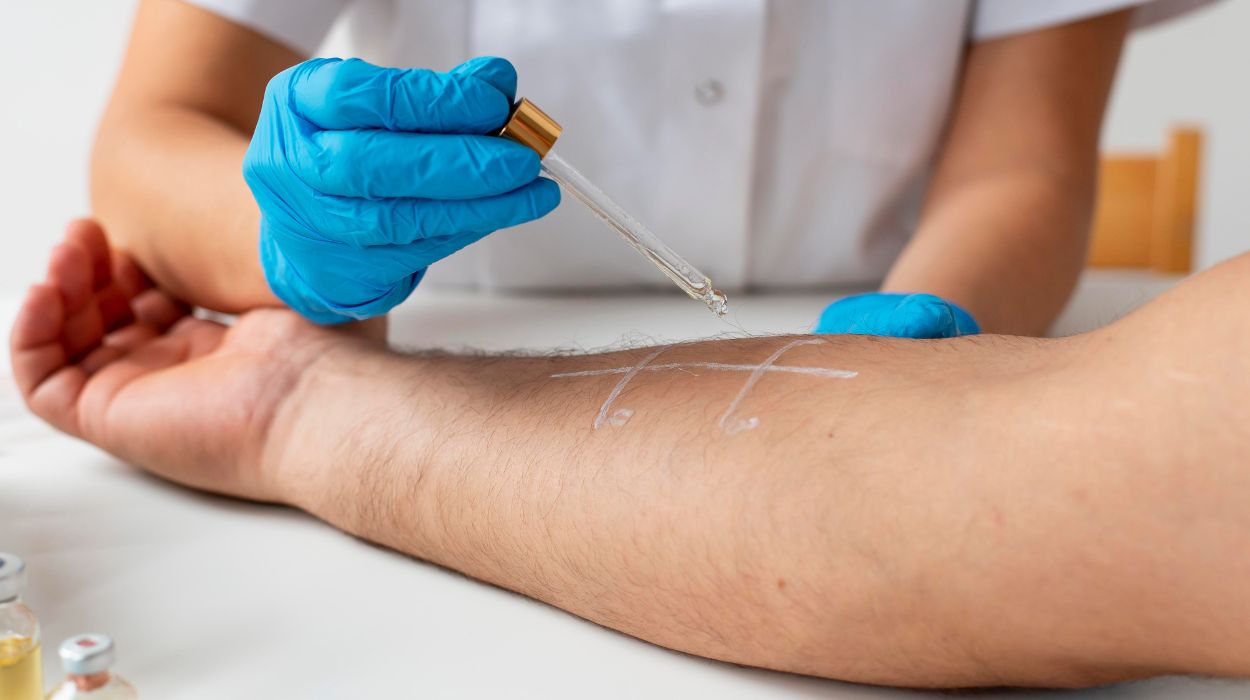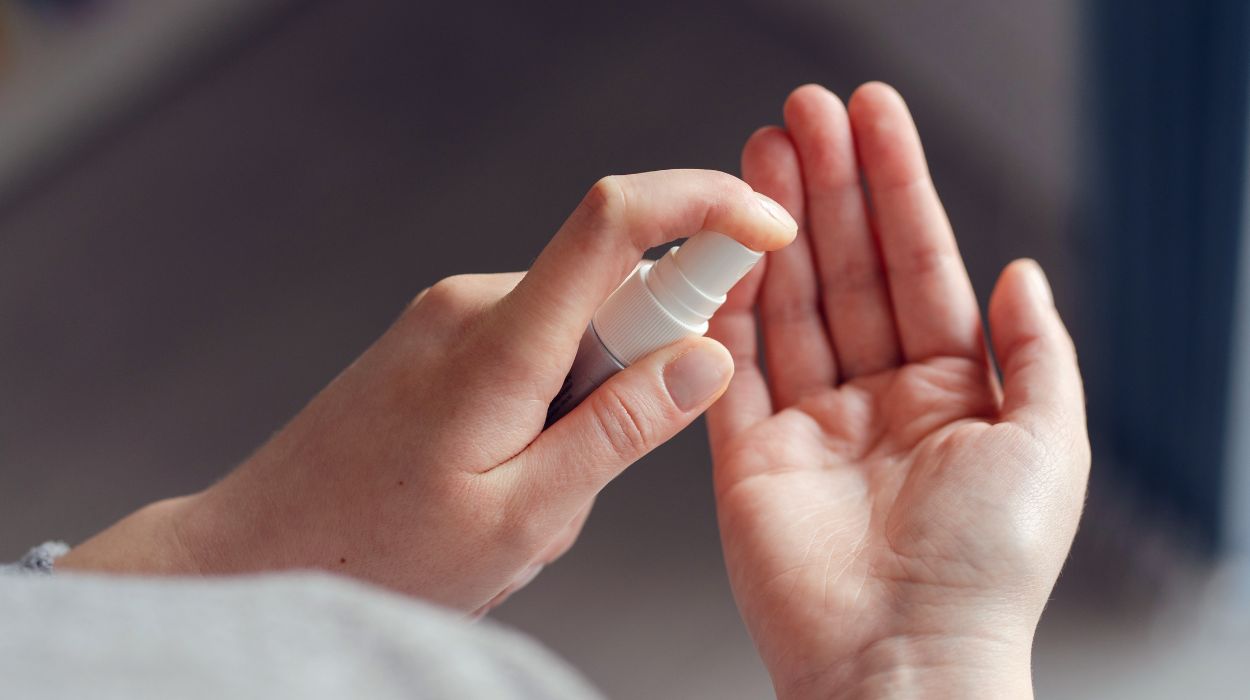Apple cider vinegar is a popular natural remedy for various health issues, including lowering blood sugar and assisting with weight loss. Apple cider vinegar is made from fermented apple juice and contains acetic acid, vitamins, minerals, and antioxidants. Many people claim that there are also amazing benefits of apple cider vinegar for the skin, such as improving its appearance, texture, and health.
But is there any scientific evidence to back up these claims? Is apple cider good for your skin? In this article, we will explore the potential apple cider vinegar benefits on the skin, how to use it safely and effectively, and what the possible side effects and risks are. Let’s get into it.
Benefits Of Apple Cider Vinegar For Skin
Applying apple cider vinegar to your skin regularly could yield the following benefits:
- Reduction of acne.
- Improvement in eczema symptoms.
- Treatment of skin infections.
- Anti-aging effects.
Apple Cider Vinegar Benefits For Skin

Apple cider vinegar has been used for centuries as a topical treatment[1] thanks to its antibacterial and antifungal properties along with its exfoliating abilities that remove dead skin cells. It can also balance the skin’s pH level, and it may be able to calm skin conditions and, when taken orally, even help you lose fat. Let’s look at some of the benefits of apple cider vinegar for skin in more detail.
Reduction Of Acne
Acne is a common skin condition caused mostly by bacteria but sometimes also by a PH imbalance[2] in acne-prone skin.
Apple cider vinegar[3] has the potential to help treat acne[4] through its antibacterial properties. It may also reduce inflammation and help restore the pH balance[5] of the natural, slightly acidic skin barrier. Apple cider vinegar can also help gently exfoliate the skin, possibly aiding in scar reduction. But the best thing to do with a bad case of acne is to talk to a board-certified dermatologist before taking matters into your own hands.
To incorporate apple cider vinegar into your acne routine, apply a diluted solution of apple cider vinegar and water to the affected areas with a cotton ball. You can also use it as a toner after cleansing your face. Make sure to dilute it, as you can get acid burns using pure apple cider vinegar, especially if you have sensitive skin.
Improvement In Eczema Symptoms
Animal studies show that apple cider vinegar may help relieve eczema symptoms by restoring the skin’s pH balance,[6] moisturizing the skin, and fighting off infections.[7] Apple cider vinegar can also reduce itching[8] and inflammation as a natural antihistamine. However, small trials with human subjects show no effect[9] of ACV soaks on dermatitis.
To use apple cider vinegar for eczema,[10] apply a diluted solution of apple cider vinegar and water to the affected areas. You can do this with a cotton ball. You could also add a cup of apple cider vinegar to your bath water and soak for 15 to 20 minutes.
However, research is contradictory[11] regarding ACV soaks and eczema relief.
Treatment Of Skin Infections
Cosmetic and clinical research has shown that apple cider vinegar is a powerful disinfectant.[7] It may prevent many skin infections if you use it to treat small wounds, and it can even be effective against antibiotic-resistant bacteria.
To use apple cider vinegar for skin infections, apply a diluted solution of apple cider vinegar and water. Do this to the infected areas with a cotton ball; you can also soak a clean cloth in the solution and wrap it around the wound.
If you have a serious infection or a bad wound, take it to a doctor. Don’t try to treat a life-threatening injury or infection with home remedies from your kitchen. Apple cider vinegar can replace the little dab of antibiotic you put on a small scrape as a preventative; it can’t treat an existing infection, certainly not as well as a full hospital can.
Anti-Aging Effects
Apple cider vinegar can help slow the aging process[12] and improve the skin’s appearance by providing gallic acid, caffeic acid, antioxidants, vitamins, and minerals. These compounds can protect the skin from free radical damage,[13] stimulate collagen production,[14] and brighten the complexion. Apple cider vinegar can also help tighten the pores, smooth the texture, and even out the skin’s tone by exfoliating and balancing the pH level.
To use apple cider vinegar for anti-aging, apply a diluted solution of apple cider vinegar and water to your face with a cotton ball, or use it as an apple cider vinegar toner after cleansing your face. Combining it with a skin supplement for more collagen can also help.
How To Use Apple Cider Vinegar For Your Skin

If you want to get the advantages of apple cider vinegar for your skin, you need to follow some simple steps and precautions to ensure its safety and effectiveness. Here are some tips on how to use apple cider vinegar for your skin.
Choose The Right Type Of Apple Cider Vinegar
Look for organic, raw, unfiltered, and unpasteurized apple cider vinegar that contains the mother – a cloudy substance, like the pulp in orange juice, that has beneficial enzymes, bacteria, and acids.
The mother is what gives apple cider vinegar its skin benefits and potency. You can find this type of apple cider vinegar in health food stores or online, but you may or may not be able to find high-quality apple cider vinegar at big box stores.
Dilute Apple Cider Vinegar Before Applying It To Your Skin
Apple cider vinegar is very acidic and can cause skin irritation, burns, or damage if used undiluted. Before applying it to your skin, you should always dilute apple cider vinegar with water.
The ratio of apple cider vinegar to water depends on your skin type and sensitivity, but a general rule of thumb is to use, at most, one part apple cider vinegar to four parts water. However, you can adjust that ratio as you need to.
Do A Patch Test Before Using Apple Cider Vinegar On Your Face
Apple cider vinegar on the skin can cause allergic reactions, irritation, or sensitivity in some people, especially those with sensitive or damaged skin. Before using apple cider vinegar on your face, you should always do a patch test to check for any side effects.
To do a patch test, apply a small amount of diluted apple cider vinegar to a discreet area of your skin, such as behind your ear or on your wrist, and wait 24 hours. If you experience any redness, itching, burning, or swelling, avoid using apple cider vinegar on your skin in the future.
Apply With A Cotton Ball Or A Spray Bottle
There are a lot of different ACV uses for skin. It can be used as a toner, a cleanser, a spot treatment, or a mask for your face.
Depending on your preference and convenience, you can apply apple cider vinegar to your face with a cotton ball or a spray bottle. Don’t let the vinegar get into your eyes, nose, or mouth, and you shouldn’t use it more than twice a day.
Side Effects And Safety Tips
Apple cider vinegar is generally safe and beneficial for most people, but it can also have some side effects and risks if used improperly or excessively. Here are some possible side effects[15] and safety tips for using apple cider vinegar for your skin.
Skin Irritation, Burns, Or Damage
Apple cider vinegar is very acidic and can irritate, burn,[16] or damage your skin if used undiluted, too often, or too long. Before applying it to your skin, you should always dilute apple cider vinegar with water. Limit its use to once or twice a day, for a few minutes at a time.
You should also avoid applying apple cider vinegar to sensitive or damaged areas of your skin. This includes the skin around your eyes, nose, or mouth or on open wounds, cuts, or sores.
Allergic Reactions
Apple cider vinegar can cause allergic reactions in some people, mostly people who are allergic to apples or citric or acetic acid. Allergic reactions can range from mild to severe and can include symptoms such as hives, rash, itching, swelling, difficulty breathing, or anaphylaxis.
You should always do a patch test on your face before using apple cider vinegar to check for any allergic reactions. If you notice any signs of an allergic reaction, stop using apple cider vinegar immediately and seek medical attention if needed.
Drug Interactions
Apple cider vinegar can interact with certain medications[17] or some types of supplements and affect their effectiveness or cause adverse effects. If you’re using a topical medication like ketoconazole or clindamycin, don’t use apple cider vinegar in the same areas without talking to your doctor first. You should also avoid using it simultaneously as another topical medication.
You’ll need to check different interactions if you’re looking for the benefits of drinking apple cider vinegar for skin. Drinking apple cider vinegar can make your stomach too acidic, leading to ulcers and acid reflux, particularly if prone to them. The benefits of apple cider vinegar may outweigh the cost, but it’s still important to be careful.
Conclusion
Apple cider vinegar is a natural and versatile product that can benefit your skin. It can help with acne, eczema, skin infections, and aging signs by providing antibacterial, antifungal, anti-inflammatory, antioxidant, and exfoliating effects. It can also balance the skin’s pH level, moisturize the skin, and improve its appearance and health.
However, apple cider vinegar is not a miracle cure for all skin problems, and it can also have some side effects and risks if used improperly or excessively. You should ensure you’re always diluting apple cider vinegar with water before applying it to your skin, and do a patch test to check for any allergic reactions or irritation. Stay aware of the possible side effects.
Apple cider vinegar can be a powerful addition to your skincare routine. While some studies show using apple cider vinegar properly has no considerable side effects,[18] you should still use it with caution and moderation.
Frequently Asked Questions
Apple cider vinegar can help remove dark spots by exfoliating and removing the pigmented skin. It can also help lighten the skin by balancing the pH level. However, it’s not a guaranteed or permanent solution.
Apple cider vinegar can stimulate the production of collagen, which gives the skin structure and elasticity. It can also help tighten the pores by exfoliating and balancing the skin’s pH level. However, the effects will be minor.
It will usually take a few days or weeks to start seeing results. However, exactly how long it will take depends on what condition you’re using it for, how much and how often you’re using it, and your skin type.
 Expert's opinion
Expert's opinion
